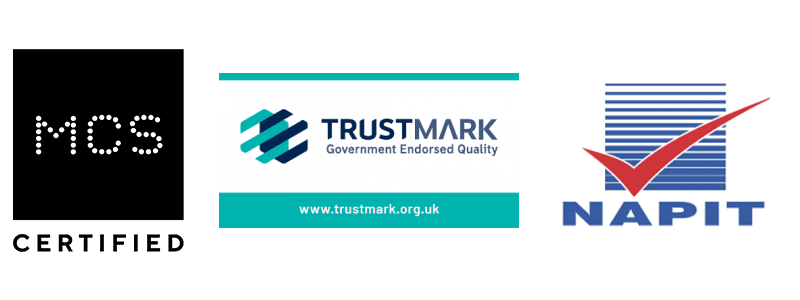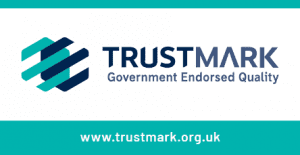As people and communities continue to grapple with the hard-hitting effects of rising energy bills, cost of living issues and problematic climate change, the need for sustainable energy solutions that can deliver long-lasting benefits has become more urgent than ever.
As a result, the UK Government is offering various energy schemes and incentives to encourage individuals, businesses, and communities to reduce their carbon footprint, transition to renewable energy sources and boost their energy rating.
These energy grants are designed to bring better energy efficiency to the UK, and deliver much lower energy bills for its population.
Understanding these schemes – for example, all the eligibility criteria and how to apply – can help homeowners, tenants and businesses make fully informed decisions when it comes to improving energy efficiency and reducing energy costs.
How do government energy grants benefit the public and the country?
Well, the government’s energy plan was launched with key goals in mind. Firstly, to help financially, ensuring people can afford basic energy needs and a happy, comfortable home, especially those who are currently in or facing energy poverty.
Secondly, to tackle and arrest the damage inflicted by climate change, by subsidising energy-efficient home improvements that will help accelerate the drive towards decarbonisation and a greener, sustainable UK.
There are a number of significant benefits to ensuring your home is as energy efficient as possible.
They include:
- Use less energy
- Reduction in energy costs
- Maintain a comfortable temperature in your home
- A quieter home
- Sell back or store energy you do not use
- Improve air quality in your home
- Reduce your carbon footprint
The two main ways to increase your property’s energy rating is by either adding quality insulation or improving your current heating system.
Insulation will help reduce the amount of energy you need to heat your home, giving you greater piece of mind – and hopefully a better bank balance – in a world where rising energy prices can bring stress and anxiety to a household. Quality insulation can also lead to an improved appearance and look to your house, and can also increase the value of the property.
Another way to improve your home is to utilise renewable technology, such as solar panels. This will allow you to generate your own energy, to offset the price of drawing electricity from the grid.

Here is a breakdown of the key UK energy efficiency schemes:
Energy Company Obligation (ECO)
This scheme, currently in its ECO4 phase, requires energy suppliers to help improve the energy efficiency of low-income and vulnerable households. ECO can fund measures like insulation, heating upgrades (including heat pumps), and even first-time central heating installations.
It is not a grant scheme and it is up to the ‘big six’ energy companies themselves to determine which retrofit projects they choose to fund, the actual level of funding they provide, and the retrofit coordinator and installers that they opt to work with.
The ECO4 scheme is set to run until 31st March, 2026 and the aim is to improve the least energy efficient homes (bands D-G) and those households who unfortunately find themselves in fuel poverty, with the result of reducing energy bills for customers and also having a positive impact on communities and the environment.
If your property has an Energy Performance (EPC) Rating of D, E, F or G, or you are claiming certain benefits then you may well be suitable for the scheme.
For further information please read the Home Energy Experts blog on ECO eligibility.
Great British Insulation Scheme (GBIS)
The GBIS, launched as an extension of the Energy Company Obligation (ECO), is one of the most accessible energy grants for UK households. It is also viewed as a cornerstone of the UK government’s strategy to improve home energy efficiency on a nationwide scale.
The primary aim is to assist homes with poor energy efficiency. To achieve this, funding is offered for insulation improvements like loft insulation, cavity wall insulation and smart heating controls.
The scheme targets households in lower council tax bands or those receiving benefits, helping them reduce heat loss in their homes and at the same time cut their energy bills. Eligibility criteria is divided into two groups:
- To qualify for the free energy efficiency method through the GBIS initiative, as part of the low-income eligibility group, a household member must receive at least one of the specified qualifying benefits. These include: Child Benefit, Pension Guarantee Credit, Income-related Employment and Support Allowance, Income-based Jobseeker’s Allowance, Income Support, Tax credits, including child tax credits and working tax credits, Universal Credit, Housing Benefit and Pension Credit Saving Credit.
- If you do not meet the low-income eligibility criteria, there is a second option available for eligibility. To qualify for an energy efficiency method, you must meet the general group criteria: Reside in a property with an EPC rating of D or lower; In England, Council Tax bands range from A to D; Properties in Wales and Scotland are assigned to Council Tax bands A to E.
Boiler Upgrade Scheme (BUS)
Replacing old gas or oil boilers with low-carbon heating systems such as heat pumps is a vital part of the UK’s net zero ambitions. The Boiler Upgrade Scheme offers upfront grants of £5,000 to £7,500 to support the installation of air source heat pumps, ground source heat pumps, and biomass boilers (in rural areas).
The scheme is available in England and Wales and aims to help reduce the cost of switching to renewable heating systems, making low-carbon alternatives more attainable for homeowners and small non-domestic buildings.
To be eligible for the Boiler Upgrade Scheme, individuals must meet the following criteria:
- Applicants must have ownership of the property they are applying for, whether it be their primary or secondary residence, business location, or rental property.
- The new heating system must be installed on or after April 1, 2022. Eligibility is maintained even if the system is planned but not yet installed.
- You are upgrading to a more energy-efficient heating system by replacing fossil fuels with an alternative source of energy (electric, solar, etc.).
- There should be no unresolved issues with cavity wall or loft insulation on your property.
Individuals interested in installing a biomass boiler should ensure that their property meets necessary requirements, which include:
- Transition to an off-grid energy source.
- Be situated in a rural area.
Home Upgrade Grant (HUG)
This grant is tailored for low-income households in properties that are off the gas grid. This grant funds energy efficiency upgrades such as wall insulation, upgraded windows and doors, and renewable heating systems like heat pumps and solar panels.
HUG is managed through local authorities and targets households that are the most vulnerable to fuel poverty. The aim is to significantly improve warmth, comfort, and reduce bills in some of the UK’s least efficient homes.
Local Authority Flex Scheme
The Local Authority Flexible Eligibility (LA Flex) scheme is an extension of the government’s ECO scheme. Unlike the ECO4 and GBIS initiatives, which have pre-set eligibility criteria determined by the government, LA Flex allows local authorities to set their own criteria.
This flexibility has enabled more residents to qualify for free energy efficient improvements for their homes. The LA Flex scheme offers similar energy efficiency methods to the ECO initiative, but specific rules and available home improvements may vary depending on your local authority.
Typically, the following home improvements are offered through the LA Flex scheme: New central heating systems; Insulation to improve energy efficiency; Free boiler replacements.
Navigating the range of government energy grants available in the UK can seem overwhelming, but the various schemes do offer meaningful support for households looking to improve energy efficiency and reduce carbon emissions.
By taking advantage of these initiatives, homeowners can lower their energy bills, increase comfort, and play a vital role in the UK’s transition to a greener future.
To apply for energy efficiency grants, start by checking your eligibility through the UK Government’s online checker.
If eligible, you can find local council details on here and inquire about grant schemes they offer, like the Energy Company Obligation (ECO) scheme.
Also, by speaking with Home Energy Experts you can not only find out if you are eligible for a particular scheme, but also be in a position to make an informed decision, so that you can take full advantage of the benefits on offer.
There are a number of pitfalls to watch out for, and avoid, when it comes to applying for any energy efficiency grant.
Here are the key ones, and what to do about them:
- Not thoroughly examining the eligibility criteria: Before pressing send on that application, ensure that you have reviewed all the specific eligibility requirements of the grant scheme, including income thresholds, benefit criteria, and property requirements. Check if your property meets the necessary EPC rating.
- Not understanding grant requirements and guidelines: Make sure that you have read any grant guidelines thoroughly. You could create a checklist based on any such guidelines, and tick them off as you go along. Read through as much information as you can.
- Inadequate Documentation: Missing or incorrect documents can lead to a grant application being rejected. Check that everything you submit is right first time, complete and up-to-date. Attention to detail is crucial.
- Using unofficial channels to apply for a grant: Applying through unofficial websites or individuals not authorised to handle grant applications could not only lead to rejection but also leave you at risk of being scammed. Always apply through official channels, like the grant provider’s website, or through a trusted installer like Home Energy Experts.
- Choosing the wrong installer: Using an unaccredited installer could void your eligibility for schemes such as ECO4. Only approved Trustmark and Microgeneration Certification Scheme (MCS) registered tradespeople can carry out work under EC04, while ensuring installations are to ‘Government Quality Standards’ (PAS2030, PAS2035 and MCS). Home Energy Experts meet all these important requirements.
- Overlooking property evaluations: If a property evaluation is required, ensure it is completed accurately and that any necessary repairs or upgrades are addressed.
- Not seeking professional advice: If you are unsure about any aspect of the application process, seek advice wherever possible from a qualified professional.
- Forgetting to get landlord permission: If you are renting, make sure you obtain written permission from your landlord before applying for any energy efficiency improvements.
- Not preparing for potential out-of-pocket costs: Be aware that some grants may require a contribution towards the cost of the work. Ensure you have the necessary funds available if this is a requirement.
Remember, use the online eligibility checker provided on the government website or other relevant websites like Home Energy Experts’ Funding page.
In conclusion, an inviting, energy efficient and sustainable home can play a critical role in people’s mental health and wellbeing.
Whether you’re after advice on the latest renewable technologies for your home, seeking further information on fabric-first insulation, or want more clarification on funding or any other grant, Home Energy Experts would love to hear from you. We can help you take the necessary steps to future-proof your home.
Rest assured, we can assist in securing fully funded government grants to support the cost of upgrading your home’s energy efficiency, allowing you to enjoy the excellent, built to last benefits.
Contact us today and let’s start the conversation.

